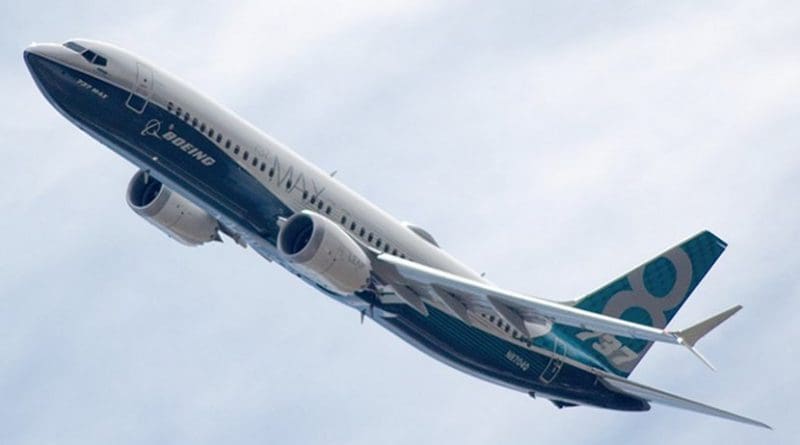Boeing Crash Victim Families Denounce EU’s Upcoming MAX Approval
By EurActiv
By Sam Morgan
(EurActiv) — The families of the victims of a 2019 deadly plane crash lodged a complaint with the EU’s aviation safety regulator on Tuesday (22 December), which is due to give the Boeing MAX aircraft permission to return to the sky in January.
Boeing’s MAX plane has been grounded worldwide since two fatal crashes in 2018 and 2019, which claimed the lives of 346 people. The European Union Aviation Safety Agency (EASA) is due to issue recertification next month, mirroring a recent decision by its US counterpart.
EASA executive Director Patrick Ky said on Sunday (20 December) that his agency is likely to give the green light in mid-January and insisted that EASA has “left no stone unturned” during its extensive review.
“We went further and reviewed all the flight controls, all the machinery of the aircraft,” Ky told the BBC. Aircraft software and wiring will have to be updated before they can return to service and pilots need to be retrained.
EASA actually broke with regulator standard operating procedure by launching its own review, as tradition dictates that the lead agency – in this case the FAA – should be trusted to carry out a review.
Given the scandal caused by the two crashes and the reported failures in the initial certification process, the EU’s regulator pledged to conduct its own inquest. However, much of the work was still ultimately carried out by the FAA.
Ky told the BBC that the MAX scandal has prompted a rethink on the role a secondary regulator should play and that the extra scrutiny will not be a one-off. “We will perform our own safety assessment, which is going to be much more comprehensive than it used to be.”
But the forthcoming green light has prompted the families of the victims of the second crash, Ethiopian flight 302, to file a complaint with the regulator, accusing EASA of failing to carry out the in-depth inquiry that was promised.
“In your meeting with the ET302 families on 16 September, you told us that the 737 MAX would not be ungrounded in Europe until the two accidents were fully understood,” the comments insist.
“You committed to us that EASA would not rely on the FAA’s findings and would conduct its own in-depth technical investigations into the modified 737 MAX,” they add. The families also complain that the safety report will not be available until after the ungrounding.
“As of today, however, the airplane remains aerodynamically unstable and out of compliance with modern aircraft certification standards,” the comments allege.
Adrian Toole, whose daughter Joanna died in the crash, said: “I was relieved when the 737 MAX was grounded, and everything that we have heard since has only convinced me that the plane should never have been built in the first place.”
The FAA investigation concluded that the on-board software could mistakenly believe that the aircraft was about to stall – a knock-on effect of the larger engines fitted to the MAX – which then prompted it to push the nose of the plane downwards.
Some pilots were able to correct the plane’s mistake but in the case of Ethiopian 302 and Lion Air 610, they were not. The families’ complaint urges EASA to insist that Boeing completely redesign the plane to “meet modern safety standards”.
EASA told EURACTIV that the agency does not comment “at this stage of the process” and that the regulator will review and reply to comments as part of the standard feedback procedure.

